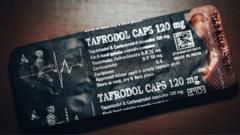In Sarajevo, the ongoing struggle against rats has reached alarming proportions, with an increase in rodent-borne diseases causing widespread concern among residents. Numerous social media posts highlight the sight of rodents swimming in the Miljacka river, coupled with overflowing garbage containers and complaints about the lack of sanitation in public spaces.
The deteriorating conditions have prompted health experts to point fingers at ineffective rodent control, leading to a concerning uptick in diseases like leptospirosis. In a shocking 24-hour period, Sarajevo's largest hospital recorded a dozen new cases of this disease, commonly referred to as "rat fever" due to its primary mode of transmission—contaminated water or soil.
Leptospirosis can manifest through severe symptoms, including headaches, muscle pain, and potentially life-threatening complications such as kidney failure. In response to this public health crisis, authorities have declared an epidemic, allowing for emergency measures to be enacted. A city-wide cleanup is underway, with the deployment of extra municipal workers using disinfectants and increased garbage collections.
Local schools have been instructed to maintain cleanliness in playgrounds and check their premises for rat infestations. Previously, a lack of pest control measures had allowed the rodent population to thrive unchecked. Officials attributed this inaction to a failed tender process regarding extermination and sanitation efforts.
Sarajevo Canton Health Minister Enis Hasanovic cautioned that this situation represents not merely a health crisis, but a wider municipal failure to uphold hygiene standards. Former clinical director Sebija Izetbegović warned that the rampant rat population could result in further health threats, including the hantavirus.
Fortunately, amid the growing concerns, there have been no severe cases reported in this latest outbreak of leptospirosis, which can carry a mortality rate exceeding 50% if untreated. However, the city's residents remain vigilant as they navigate the escalating rodent challenges.
The deteriorating conditions have prompted health experts to point fingers at ineffective rodent control, leading to a concerning uptick in diseases like leptospirosis. In a shocking 24-hour period, Sarajevo's largest hospital recorded a dozen new cases of this disease, commonly referred to as "rat fever" due to its primary mode of transmission—contaminated water or soil.
Leptospirosis can manifest through severe symptoms, including headaches, muscle pain, and potentially life-threatening complications such as kidney failure. In response to this public health crisis, authorities have declared an epidemic, allowing for emergency measures to be enacted. A city-wide cleanup is underway, with the deployment of extra municipal workers using disinfectants and increased garbage collections.
Local schools have been instructed to maintain cleanliness in playgrounds and check their premises for rat infestations. Previously, a lack of pest control measures had allowed the rodent population to thrive unchecked. Officials attributed this inaction to a failed tender process regarding extermination and sanitation efforts.
Sarajevo Canton Health Minister Enis Hasanovic cautioned that this situation represents not merely a health crisis, but a wider municipal failure to uphold hygiene standards. Former clinical director Sebija Izetbegović warned that the rampant rat population could result in further health threats, including the hantavirus.
Fortunately, amid the growing concerns, there have been no severe cases reported in this latest outbreak of leptospirosis, which can carry a mortality rate exceeding 50% if untreated. However, the city's residents remain vigilant as they navigate the escalating rodent challenges.

















